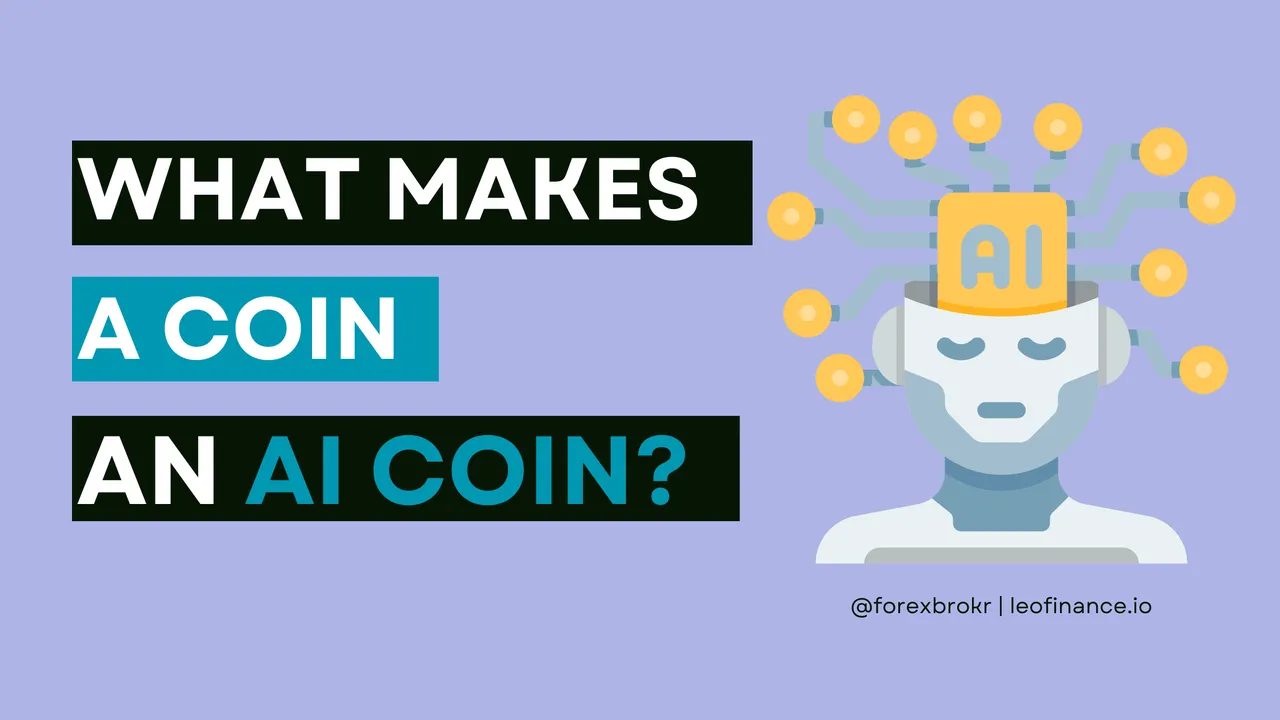
Direct from the desk of Dane Williams.
The topic of what makes a coin an AI coin was something I briefly touched on at the beginning of yesterday’s 5 largest AI coins by market cap post.
But after seeing and getting into some of the discussions in the comments, it’s definitely a topic that deserves a standalone look.
I want to start by answering the question straight up:
What exactly makes a coin an AI coin?
While ChatGPT and similar AI models do not rely on a coin to function, the concept of an AI coin generally refers to cryptocurrencies that prioritise the enablement, enhancement, or implementation of AI technologies.
Remember, AI coins don't directly power the algorithms themselves.
Rather, they are designed to support and facilitate AI-related applications.
These coins, as part of their parent projects, utilise blockchain technology to address challenges in AI systems.
Challenges such as:
- Scalability
- Privacy
- Trust
I’m going to try to stick to the theme and use the coins featured in yesterday’s top 5 as the examples I talk about, going from there.
So yep, let’s get into it.
Examples of AI coins and what makes them
Let's start with Render (RNDR), the largest AI coin and clear number 1 by market cap on my list.
Render aims to create a decentralised network for graphics rendering using blockchain technology.
By leveraging the power of distributed computing, Render provides a platform for AI developers to collaborate, share their algorithms.
Ultimately monetising their work effectively.
See, the coin has nothing to do with the AI code itself and has no function there
Next on my list is the AI coin, SingularityNET (AGIX).
SingularityNET is an open marketplace for AI services, where developers can share and trade their AI algorithms.
The platform's decentralised nature ensures transparency and fosters innovation by allowing developers to access and combine different AI technologies.
Ultimately helping to advance the field as a whole.
Again, see the coin has zero influence on the AI code that does all the work when you input prompts.
It’s all to do with services surrounding it.
Fetch.ai (FET), number 3 on my list, is yet another coin that focuses on AI integration rather than having any impact on the code itself.
This project aims to create an infrastructure for autonomous machine-to-machine interactions.
By combining AI, blockchain and multi-agent systems, Fetch.ai enables various applications.
Think things such as supply chain optimisation, smart cities and decentralised finance, all being powered by intelligent algorithms.
Once more, we see the coin’s use case is within the infrastructure facilitating the code.
Ocean Protocol (OCEAN) tackles the challenge of data sharing and privacy in the AI domain.
This AI coin provides a secure and decentralised marketplace for data.
By utilising blockchain technology, Ocean Protocol ensures that data providers maintain control over their information.
All while enabling AI developers to access diverse datasets for training and development.
You don’t need a coin to code AI.
But when it comes to decentralising the data that it draws upon and outputs, a currency to facilitate governance and the like is required.
This is a prime example of an AI coin’s use case.
Lastly, let's talk about Akash Network (AKT).
Now I mentioned yesterday that I had no idea how a decentralised cloud computing project could be considered an AI coin by CoinGecko.
But JK jumped into the comments and let me know that they’re actually rolling out a GPU marketplace alongside the cloud computing market which never really seemed to gain a lot of traction.
A pivot that will see the project become similar to RNDR, but different also.
Ultimately, it’s this GPU marketplace that will move AKT to being a true AI coin like the others on my list.
Final thoughts
Hopefully these examples illustrate just what makes a coin an AI coin.
I’ve tried to use them to show how AI coins leverage blockchain technology to create platforms, marketplaces and the networks that benefit the advancement of artificial intelligence.
Again, just remember that while AI coins may not be essential for the functioning of AI algorithms, they play a vital role in supporting and advancing the field of artificial intelligence.
By embracing blockchain and crypto-based solutions, these coins address critical challenges and foster an ecosystem that encourages the full democratisation of AI generated data.
Something that no doubt any of us in this space want to see.
Best of probabilities to you.